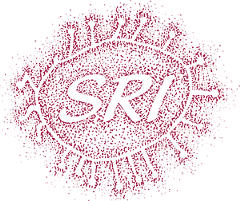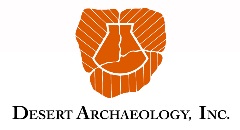The Future of Cultural Resource Management Archaeology in the United States
Join the Conversation
Updates: Envisioning New Directions for CRM Archaeology
Now available: Update on Airlie House 2.0 Progress October 2024
SUPPORTERS
b9952166b74b45709539af11e0e4ae40.tmb-medium.png?Culture=en&sfvrsn=a1de6456_1)


Metcalf Archaeological Consultants Statistical Research, Inc. Desert Archaeology, Inc.
In 1974, cultural resource management legislation spurred the organization of a conference at the Airlie House retreat in Warrenton, Virginia. The report from the conference, published in 1977, helped shape federal archaeology and cultural resource management over the next four decades. But the world is rapidly changing, and archaeology needs to convene a new Airlie House-like conference in order to address such issues as improving engagement and partnerships with descendant communities, climate change impacts, decolonizing archaeology, and academic training that supports and advances compliance with our nation’s historic preservation laws.
At the 2024 Annual Meeting in New Orleans, you are invited to join a forum AIRLIE HOUSE REVISITED: ENVISIONING NEW DIRECTIONS FOR CRM ARCHAEOLOGY (Sponsored by SAA President)
Time: 10:00 a.m.–12:00 p.m.
Moderator: John Douglass
Abstract: The National Historic Preservation Act of 1966 set the course for archaeology in the United States. The SAA and National Park Service’s 1977 report entitled “The Management of Archaeological Resources: The Airlie House Report” brought cultural resource management to the fore and continues to influence it. However, as we enter the third decade of the twenty-first century, archaeology is facing new challenges not foreseen in the Airlie House Report. In recent years the profession has changed, guided by newer laws and regulations, technological innovations, a curation crisis, and social issues such as climate change, environmental justice, the rights of Indigenous and descendant communities, and Traditional Ecological Knowledge. These changes and innovations are affecting how archaeology is practiced today. Further, necessary changes to professional training and a projected shortfall in workforce capacity pose additional challenges. We have urgent work to do to ensure that cultural resource management and the discipline writ large reflect and are responsive to these changes. This forum seeks to discuss major topics affecting our profession in the coming decades, led by facilitators in the Airlie House Revisited workshop to be held in May 2024.
Discussants: Dan Sandweiss; S. Terry Childs; J. Signe Snortland; Josh Torres; Rebecca Hawkins; William White.
In 2022 and 2023 SAA and National Parks Service, with numerous other groups, held several events to solicit input on the topics that will contour the future of CRM archaeology. These activities included a webinar on February 8, 2023, to identify those topics for the decades ahead and an in-person conversation at the SAA 88th Annual Meeting in Portland.
Between October 16 and October 28, 2022, we asked archaeologists working in the United States to prioritize nine preliminary topics for the conference in an online survey. We also include essays by some of the participants of the original Airlie House conference to learn about the impact that report had on the profession.
View the survey result slides here.
REFERENCES
Becoming an Archaeologist: A Guide to Professional Pathways, 2nd Ed., Joe Flatman
Practicing Archaeology: A Manual for Cultural Resources Archaeology, 3rd Ed., Thomas W. Neumann, Robert M. Samford, Mary Spink Neumann







